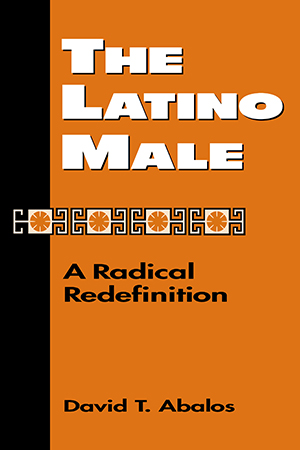David T. Abalos
What does it mean to be a Latino man in the United States today? David Abalos shows how the traditional cultural stories—the male roles of the mujeriego (the womanizer), the macho, and the patriarch—are becoming unlivable. Too many men choose manipulation, power, or violence in response, in an effort to restore the old order. But there is an alternative, argues Abalos.
Demonstrating that Latino men can participate in the creation of a new way of living, Abalos boldly reconsiders how the personal can be political. He redefines machismo as the pride in self that allows Latino men to choose and create new and better stories for themselves as faithful lover, as political innovator, as archetypal guide. And he shows how the transforming Latina/o family can generate a new and vital comunidad Latina in the United States.
David T. Abalos is professor of religious studies and sociology at Seton Hall University. His publications include La Comunidad Latina in the United States: Personal and Political Strategies for Transforming Culture.
"A celebration of the new Latino man and his critical role in our society."—José Adames,
Hispanic Outlook
"The Latino Male: A Radical Redefinition is a landmark work, one that will change forever the way we talk about machismo, men and women, feminism, and families. This book secures Abalos' place as a great American intellectual whose vision for the Latino community moves beyond merely describing problems to advancing spirited and grounded solutions that can open the way to transformation."—Demetria Martínez
"David Abalos is a prophet with a visionary plan. The Latino Male is a profound and caring critique of hyper-masculinity, which often damages the people it pretends to defend. This is a bold, honest, and imaginative account of the destructive and creative sides of sex, family, childrearing, masculinity, and femininity in the Latino community. Que Viva the new Latino as envisioned by Abalos!"—David Carrasco, Harvard University
"A brave and bold new work by the conciencia and guide of our community. It is an invitation for all Latino males to behold the personal, political, historical, and sacred in their own lives as they journey toward a life of healing and transformation. The time has come to create and tell new stories for the Latina/o community and I consider this book required reading." —Alberto López Pulido, Arizona State University West






